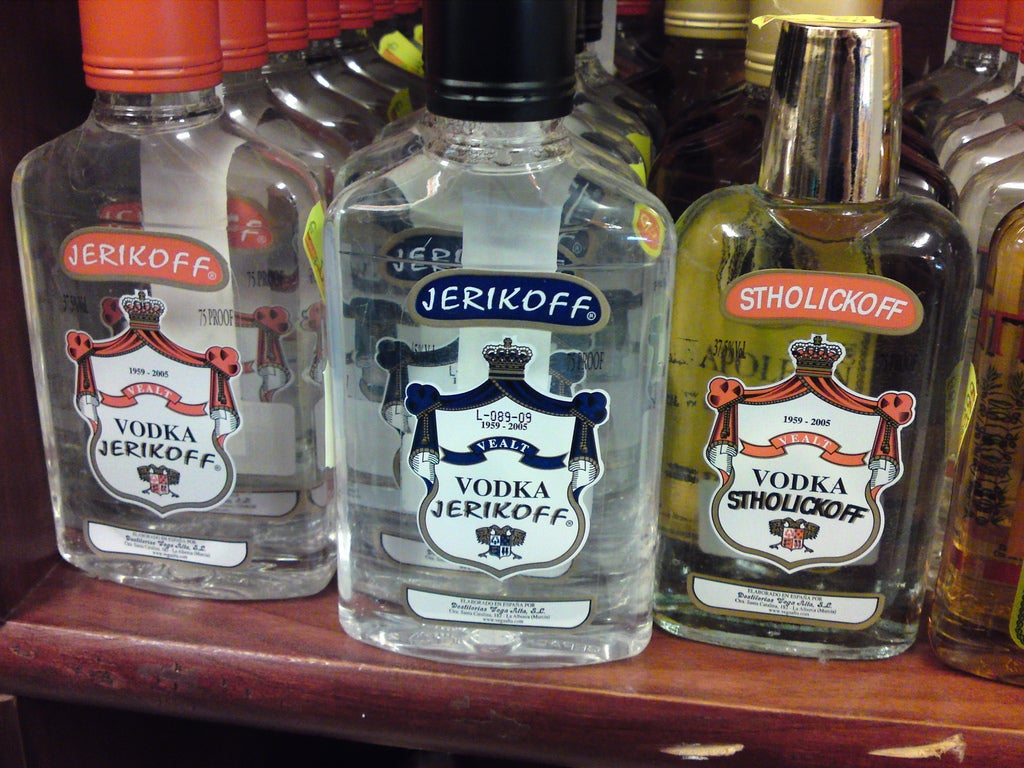Bad booze: Students warned about dangers of counterfeit alcohol

Your support helps us to tell the story
From reproductive rights to climate change to Big Tech, The Independent is on the ground when the story is developing. Whether it's investigating the financials of Elon Musk's pro-Trump PAC or producing our latest documentary, 'The A Word', which shines a light on the American women fighting for reproductive rights, we know how important it is to parse out the facts from the messaging.
At such a critical moment in US history, we need reporters on the ground. Your donation allows us to keep sending journalists to speak to both sides of the story.
The Independent is trusted by Americans across the entire political spectrum. And unlike many other quality news outlets, we choose not to lock Americans out of our reporting and analysis with paywalls. We believe quality journalism should be available to everyone, paid for by those who can afford it.
Your support makes all the difference.It can contain toxic chemicals, like chloroform, cleaning fluid, nail-polish remover, anti-freeze or even isopropranol – which is lethal in high doses.
What’s worse, bootlegged industrial alcohol sold over the counter as familiar brands can cause sickness, vomiting, nausea and even blindness.
With this in mind, students are being warned as they start their new terms to watch out for counterfeit booze on sale in off-licenses and corner shops across the country.
Recent raids in Sheffield have seized more than 2,000 bottles of fake spirits in the last five months alone, with prosecutions taken against 15 premises found selling it in the city.
Meanwhile, Cairnryan in Scotland, HMRC captured more than 13,000 litres of bootlegged booze in one 40ft truck alone, which they say is worth around £260,000 in lost duty.
And in Leeds, Gatecrasher Clubs and Bars Limited were fined by magistrates for selling industrial alcohol as vodka during freshers’ week. Trading standards officers found 656 litres of dodgy alcohol labelled as premium vodka.
Jack Scott, a member of Sheffield Council, told the Sheffield Star that “counterfeit booze bottles are so convincing it is often hard to tell them apart from the real thing”.
Suspicious students should look for ‘badly-applied labels, fake tax stamps, misspelt labels, unfamiliar brand names and very cheap prices’.
A recent report from PwC confirms that counterfeit goods are becoming more accepted in British life, including anything from cigarettes and alcohol to films, music and even medicines. In fact, their research suggests that as many as 20 per cent of 18-to-24-year-olds do not believe counterfeiting to be morally wrong.
Mark James, of PwC’s anti-counterfeiting team, said: “The digital economy and global supply chains have made tracking counterfeit goods and measuring their economic damage fiendishly complex.”
London is apparently the most fake-infested region, followed by Northern Ireland. The main market for fake goods are the “less affluent”.
“Counterfeits have an obvious impact on profit and jobs, yet people increasingly see access to fakes as a normal, consumer choice.”
Join our commenting forum
Join thought-provoking conversations, follow other Independent readers and see their replies
Comments